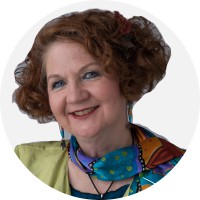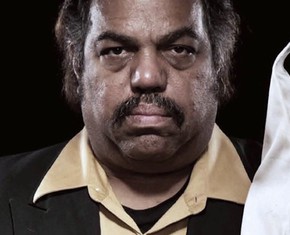The views expressed in our content reflect individual perspectives and do not represent the authoritative views of the Baha'i Faith.
The earliest memory I have of Mother’s Day was being given a red rose to wear to church because my mother was alive.
At that time and place, people of both genders and all ages whose mothers had died wore white roses to church on Mother’s Day; the rest of us wore red roses. It was clearly a day to remember and mourn the departed mothers, and celebrate the living maternal figures in our lives. I remember looking around the sanctuary to see who was wearing a white rose and then feeling sad for whoever was.
RELATED: The Spiritual Significance of Roses
That custom seems to have died out like many others associated with the history of Mother’s Day, such as:
- The celebration of Rhea, the “mother of the gods” in ancient Greece.
- Commemorations of Cybele, a mother goddess in ancient Rome (until some commotion caused her followers to be banished).
- The honoring of the goddess Brigid, and later her successor St. Brigid, with a spring Mother’s Day event connected with the first milk of the ewes in the British Isles and Celtic Europe.
- The creation by 17th century Brits of Mothering Sunday, a day when apprentices and servants could return home for the day to visit their mothers.
- The observances in West Virginia of Mothers’ Work Days at the initiation of Anna Reeves Jarvis, a local teacher and church member, who wanted to work for improved sanitation in her town and later for both sides in the conflict of the Civil War.
But there is one idea that shouldn’t die out—between the various historical components of Mother’s Day celebrations and the Hallmark holiday we have now—and that is the connection of Mother’s Day to the possibility of world peace. It seems to be a little known fact that Julia Ward Howe—perhaps most famous as the author of the words to the “Battle Hymn of the Republic”—tried to establish a “Mother’s Day for Peace” in America after becoming horrified by the carnage of the Civil War and the Franco-Prussian War. In 1870, she issued a manifesto for peace at international peace conferences in London and Paris, which later became her “Mother’s Day Peace Proclamation.”
RELATED: The Spiritual Power of the Feminine Qualities
In this document, Howe calls upon the women of the world to arise to say firmly:
We will not have questions answered by irrelevant agencies,
Our husbands will not come to us, reeking with carnage,
For caresses and applause.
Our sons shall not be taken from us to unlearn
All that we have been able to teach them of charity, mercy and patience.
We, the women of one country,
Will be too tender of those of another country
To allow our sons to be trained to injure theirs.
– Julia Ward Howe, September 1870.
Howe continues with a plea for disarmament, for “The sword of murder is not the balance of justice.” She calls upon women to “Take counsel with each other as to the means whereby the great human family can live in peace … to promote the alliance of the different nationalities, the amicable settlement of international questions, the great and general interests of peace.“
Apparently in 1873, women in 18 cities in America held a Mother’s Day for Peace gathering and Boston celebrated the Mother’s Day for Peace for at least 10 years. But the celebrations died out when Howe was no longer paying for the celebrations. Howe turned her efforts to working for peace and women’s rights in other ways.
Almost 150 years have passed, and there is still human carnage with which to reckon. Humankind seems caught in a perpetual struggle, based on differences of nationality, race and religion. Will the women of the world arise to make things different, help us to recognize our collective humanity, and put an end to war?
The Baha’i writings contain wonderful predictions:
When … the equality of men and women [is] realized, the foundations of war will be utterly destroyed. – Abdu’l-Baha, The Promulgation of Universal Peace, p. 175.
In truth, [woman] will be the greatest factor in establishing universal peace and international arbitration. Assuredly, woman will abolish warfare among mankind. – Abdu’l-Baha, Ibid., p. 108.
So it will come to pass that when women participate fully and equally in the affairs of the world, when they enter confidently and capably the great arena of laws and politics, war will cease. – Abdu’l-Baha, Ibid., p. 135.
Only as women are welcomed into full partnership in all fields of human endeavor will the moral and psychological climate be created in which international peace can emerge. – The Universal House of Justice, October 1985, The Promise of World Peace (A letter to the peoples of the world)
These Baha’i predictions confirm the visionary ideas of Julia Ward Howe. Perhaps on this year’s Mother’s Day we can all reflect upon the strength of womankind and hasten the day when peace can be achieved.
Howe’s Mother’s Day Peace Proclamation is provided in its entirety below, and you can learn more about Julia Ward Howe’s life and contributions to society.
Mother’s Day Proclamation – 1870
By Julia Ward Howe
Arise then…women of this day!
Arise, all women who have hearts!
Whether your baptism be of water or of tears!
Say firmly:
“We will not have questions answered by irrelevant agencies,
Our husbands will not come to us, reeking with carnage,
For caresses and applause.
Our sons shall not be taken from us to unlearn
All that we have been able to teach them of charity, mercy and patience.
We, the women of one country,
Will be too tender of those of another country
To allow our sons to be trained to injure theirs.”
From the voice of a devastated Earth a voice goes up with
Our own. It says: “Disarm! Disarm!
The sword of murder is not the balance of justice.”
Blood does not wipe our dishonor,
Nor violence indicate possession.
As men have often forsaken the plough and the anvil
At the summons of war,
Let women now leave all that may be left of home
For a great and earnest day of counsel.
Let them meet first, as women, to bewail and commemorate the dead.
Let them solemnly take counsel with each other as to the means
Whereby the great human family can live in peace…
Each bearing after his own time the sacred impress, not of Caesar,
But of God –
In the name of womanhood and humanity, I earnestly ask
That a general congress of women without limit of nationality,
May be appointed and held at someplace deemed most convenient
And the earliest period consistent with its objects,
To promote the alliance of the different nationalities,
The amicable settlement of international questions,
The great and general interests of peace.
















Comments
Sign in or create an account
Continue with Googleor